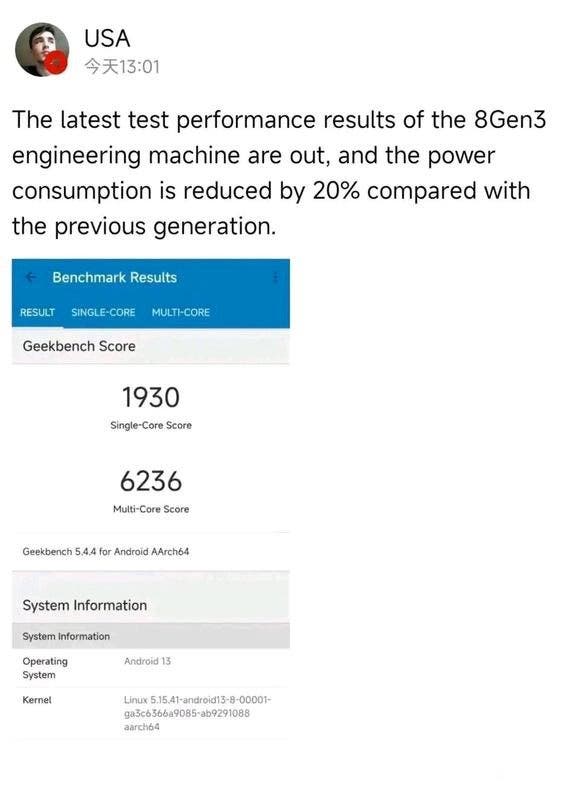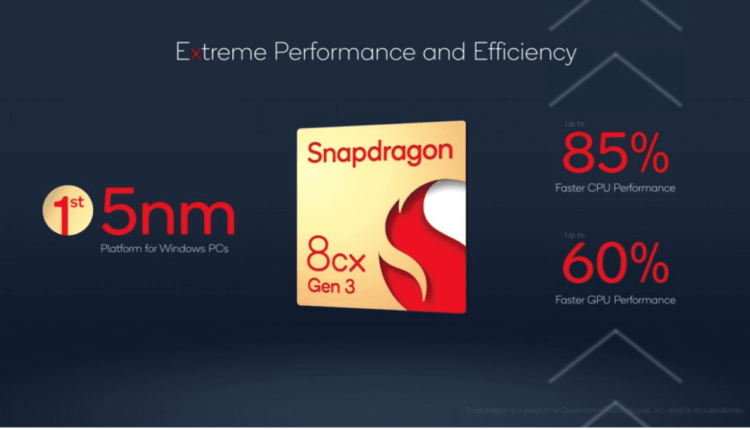©2021 Reporters Post24. All Rights Reserved.
The mobile phone industry has been heating up lately with the release of new processors, and Qualcomm’s Snapdragon series has been at the forefront of the competition. The Snapdragon 8 Gen 2 has been a popular choice for high-end smartphones. But it falls short when compared to Apple’s A-series chips. However, Qualcomm aims to fill that gap with the upcoming Snapdragon 8 Gen 3, which is rumored to feature an Arm Cortex-X4 core, a unique 1+5+2 core configuration, and TSMC’s N4P process node.
QUALCOMM SNAPDRAGON 8 GEN 3 SURPASSES APPLE A16 BIONIC IN GEEKBENCH
Geekbench, a popular benchmarking tool for mobile devices, has recently leaked alleged scores of the Snapdragon 8 Gen 3. The supposed single core score is an impressive 1,930, while the multi core score is even higher at 6,236. These numbers are significantly higher than what was initially expected, with previous rumors suggesting a score of 1,800 for single core and 6,500 for multi core. Comparing these scores to the current gen Snapdragon 8 Gen 2, which averages 1,491 for single core and 5,164 for multi-core, shows a massive increase of 30% in single core performance and 20% in multi-core.
GIZCHINA NEWS OF THE WEEK

One of the main advantages of the Snapdragon 8 Gen 3 is its 1+5+2 core configuration. This setup features one high performance core, five middle cores, and two efficiency cores. Which is a change from its predecessor’s 1+4+3 setting. This new configuration allows for better power management. And the chip is said to be 20% more power efficient than the Snapdragon 8 Gen 2. Additionally, the use of TSMC’s N4P process node could also contribute to the chip’s efficiency.
Despite the promising rumors and leaked scores, it’s important to take this information with a dose of skepticism. The Snapdragon 8 Gen 3 is still in the engineering sample stage. And the engineers could be pushing the chip to its limits to determine its performance capabilities. It’s possible that the final product’s performance may not be identical to the leaked scores. And may need to be slower to manage thermals.


